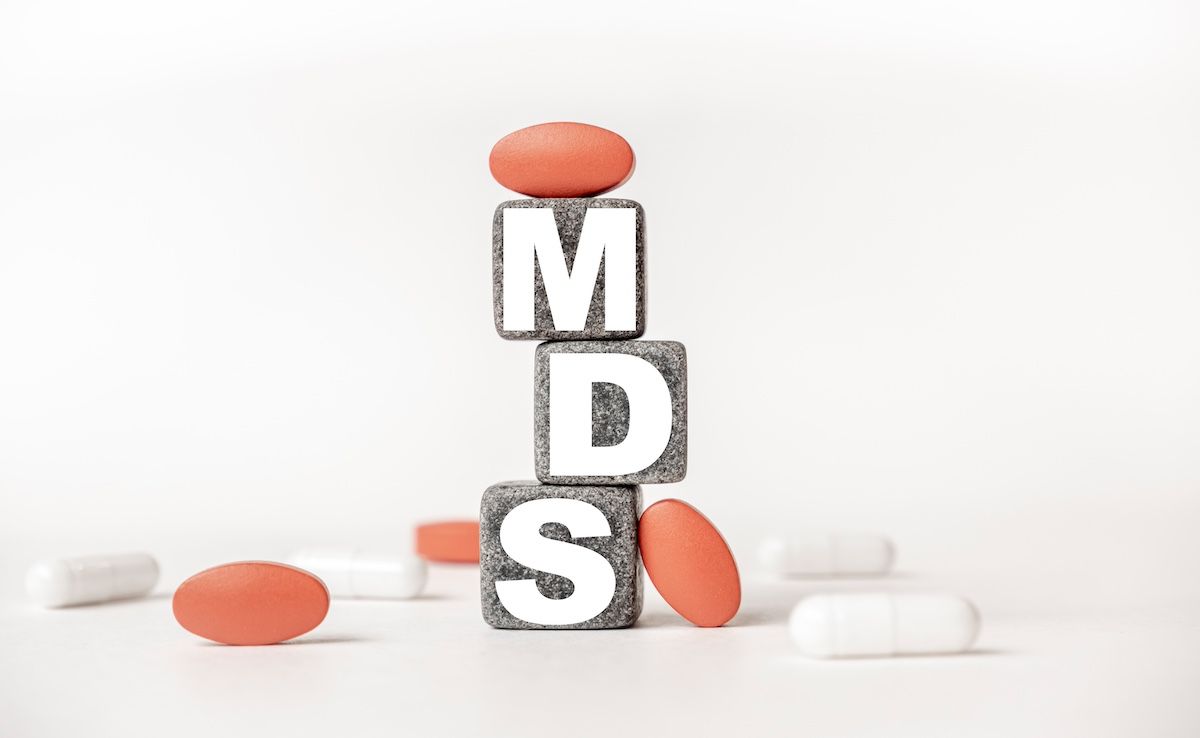- Center on Health Equity & Access
- Clinical
- Health Care Cost
- Health Care Delivery
- Insurance
- Policy
- Technology
- Value-Based Care
Exploring Response to HMAs for MDS Across Various Patient Types
Two abstracts presented at the 2024 American Society of Hematology Annual Meeting & Exhibition provided insight into MDS response to hypomethylating agents (HMAs).
Patients with myelodysplastic syndromes (MDS) of varying cytogenic risk have significantly different prognoses after treatment with a hypomethylating agent (HMA), and clonal dissection may help uncover reasons behind HMA response, according to a pair of abstracts presented at the 2024 American Society of Hematology (ASH) Annual Meeting & Exhibition.1,2
Using the largest database of patients treated with an HMA for MDS, authors of one abstract assessed the revised version of the International Prognostic Scoring System (IPSS), which has expanded to 5 categories, up from 3.1
Two abstracts presented at ASH 2024 provided insight into MDS response to hypomethylating agents (HMAs) | Image credit: Sviatlana - stock.adobe.com

“Among the new groups introduced in IPSS-R is the ‘very complex’ karyotype (VCK) where ≥4 karyotypic abnormalities are seen compared to ‘complex karyotype (CK)’ with only 3 abnormalities,” the researchers detailed.“However, the prognostic impact of VCK vs CK, as well as individual cytogenetic abnormalities and TP53 mutation status within the CK and VCK subgroups in pts with MDS treated with hypomethylating agents (HMAs) has not been well studied.”
Data from the 1450 patients showed that among those with TP53 mutations, patients with VCK MDS had worse median overall survival (mOS) (12.2 months; range, 11.1-13.9) than patients with non-complex karyotype (NCK) (24.2 months; range, 16.1-53.1; P < .001). mOS was not significantly different between patients with VCK MDS and those with CK MDS, who had a median OS of 19.9 months (range, 9.5-not reached; P = .9). There was also a lack of significant difference in mOS between patients with CK MDS and NCK MDS (P = .16).
The presence of TP53 mutations was more common among patients with VCK MDS (75%; n = 330) than patients with CK (40%; n = 21; P < .001), and NCK (7%; n = 64; P < .001). Patients were treated with azacytidine (71%), decitabine (14%), HMA and venetoclax (6%), or another HMA combination (9%).
Overall, mOS got worse as complexity progressed across patient groups. mOS for patients with VCK MDS was 12.6 months (range, 12.5-14.5), for patients with CK was 19.9 months (range, 19.9-16.8; P = .004), and NCK was 36.1 months (range, 32.7-37.8; P < .001).
In another abstract presented at ASH, researchers dug deeper into patients with MDS most likely to respond to HMA treatment. By performing a clonal dissection during treatment, the group found that shared splicing neoantigens may be a novel immunotarget to help mitigate resistance to HMA treatment.2
“Hypomethylating agents (HMA) such as decitabine and azacytidine (AZA) induce a clinical response in both low- (LR) and high-risk MDS, but only in a subset of patients,” the researchers wrote.“New long-read single-cell sequencing technologies have the potential to disentangle the mechanistic underpinnings, clonal relationships and splicing alterations that occur during therapy in MDS, in an unbiased manner.”
The group took a multiomic single-cell approach to examining bone biopsies of patients with MDS. Hematopoietic stem cells and progenitor cells (HSCPs) were assessed using short-read and long-read sequencing, and mutation and isoform predictions were subsequently validated.
Also using samples of healthy patients, the researchers were able to observe notable differences in the most primitive HSCPs, with significant induction of interferon pathway gene expression and broad splicing alterations in the same cells.Treatment with azacytidine was able to partially rescue the dysregulated gene expression and splicing observed in HSPCs of patients with low-risk MDS.
Novel immunotargets were identified using a deep-learning platform among samples from 346 patients. Among the hundreds of high-confidence candidates were those occurring in more than 15% of patients and those specific to patients with splicing factor mutations, such as SF3B1 and K700E.
References
- Getz TM, Kewan T, Bewersdork JP, et al. Clinical outcomes and variability based on baseline cytogenetic risk of patients with MDS treated with hypomethylating agents: an analysis from the International Consortium for MDS (icMDS) validate database. Presented at: 66th ASH Annual Meeting & Exposition; December 7-10, 2024; San Diego, CA. Abstract 3219.
- Zhang X, Li G, Oliverio A, et al. Clonal dissection of MDS and secondary AML resolves shared splicing neoantigens and mechanistic underpinnings og hypomethylating agent therapeutic response. Presented at: 66th ASH Annual Meeting & Exposition; December 7-10, 2024; San Diego, CA. Abstract 1810.
The Importance of Examining and Preventing Atrial Fibrillation
August 29th 2023At this year’s American Society for Preventive Cardiology Congress on CVD Prevention, Emelia J. Benjamin, MD, ScM, delivered the Honorary Fellow Award Lecture, “The Imperative to Focus on the Prevention of Atrial Fibrillation,” as the recipient of this year’s Honorary Fellow of the American Society for Preventive Cardiology award.
Listen
